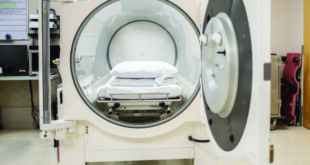Alcohol addiction is on the rise not just amongst adults, but also among children – especially during the isolation period of lockdown. In the UK, approximately 2.6 million kids live with a parent who drinks excessively. With easy access to alcohol, children are prone to adopting the habits of adults they live with.
The Rise in Alcohol Consumption During Covid-19 Lockdown

The rise in using alcohol to cope with stress and anxiety was at an all-time high during the Covid-19 lockdown. With the world shutting down, people were forced to stay at home to avoid spreading the virus. It caused many to turn to alcohol consumption, including youngsters. With nowhere to escape, and alcohol easily available, children too used alcohol to deal with the loneliness that arises with isolation.
Statistics claim that throughout the COVID-19 pandemic, binge drinking has amplified, with deaths in the UK escalating to 19% in 2020 in comparison with 2019.
Regardless of this, 44% of board regions have given out recommendations to address addiction management deteriorating – a solitary council (Solihull) believed medical appointments had decreased by approximately 50%.
Almost 65% of alcohol and drug management facilities witnessed their local consultant’s subsidy being cut or didn’t increase during 2019 till 2024, and 57% of assemblies don’t have any policies to care for the kids of alcoholics.
The Impact of Cuts & The Influence It Will Have on Children
In the UK, cuts to welfare are predicted to thrust numerous kids into poverty, and the consequence of this on their well-being is unidentified. Though there is considerable confirmation that poverty has deep-rooted repercussions on health, the tools to measure how it occurs are yet to be uncovered.
Poverty is distinguished by the UK’s administration as existing in a house that generates under 60% of the nation’s average yearly income. The starting point is at present £17,994. Approximately 3.2 million kids are under this mark in 2020 – around 23% of youngsters in the nation.
The administration’s per week £20 increase to Universal Credit expenditures, envisioned as a funding amount through the pandemic ends soon and is anticipated to land an additional 290,000 kids falling underneath the scarcity line, as reported by the Legatum Institute in London.
Children growing up in poverty show a massive effect on their health. Children from poor families are expected to suffer from obesity and asthma as well as cultivate stomach cancer as grownups.
More Likely to Develop Chronic Illness

Nourishment uncertainty as a kid has moreover been connected to chronic diseases like obstructive pulmonary and cardiovascular in the future. When food becomes scarce, it means that proper proteins and vitamins are not going into the bodies of these kids.
Higher Illiteracy Rate
Offspring of underprivileged families are inclined to start school with inferior knowledge abilities and develop psychological health disorders like depression and anxiety and depression in the future. Poor families often can’t afford to send their children to school which leads to a higher illiteracy rate.
Prone To More Stress

Children growing up in poor families are often more stressed. The stress hints at a tenacious boost of soreness which disturbs the cardiovascular, metabolic, and immune systems. It further disturbs the development of mind courses, relating to a youngster’s aptitude to concentrate, and the capability to regulate their instincts, all of which are essential for doing well in school.
Alcoholism Being Linked to Alcohol Fuelled Environments
Genetics
When someone has grown up in an environment where a parent, sibling, or relative was constantly drinking, it’s easy to fall into the same pattern. Getting out of the mindset that alcohol helps with stress and anxiety is a difficult process. Here is how alcoholism is being linked to alcohol-fuelled environments.
Social Control
Origins of social control comprise both risk and protective environments that mainly function to pressure or allow chances to consume alcohol. Hanging out with people who constantly use alcohol as a way to have fun can prove to be detrimental if you’re trying to quit drinking. In this instance, it’s important to know that you can say no.
Seek Professional Help
Children who grow up in alcohol-fuelled environments are statistically more likely to grow up alcoholics themselves. Anyone with young children who are struggling with alcohol should be encouraged to seek help as soon as possible, it’s never too late for a life-changing experience.
Paul Spanjar, CEO of the providenceproject.org, understands the link between alcohol addiction & children all too well, “”Children who grow in alcohol-fuelled environments are statistically more likely to grow up alcoholics themselves. I encourage anyone with young children who are struggling with alcohol to seek help as soon as possible, it’s never too late for a life-changing experience.”
It is a reasonably priced addiction rehab centre that offers a free inclusive phone evaluation to detect the finest option for treatment.
Summary
Allowing yourself the chance at seeking help from professionals is always a good thing. Alcohol addiction is not something to be taken lightly.
#1 It’s easy to binge drink your troubles away, which can eventually lead to AUD.
#2 Underprivileged children are more prone to developing an addiction when they grow up as compared to rich family kids.
#3 Isolation often leads to loneliness which means using alcohol to take the edge off from stress.
#4 Remember that you can always say no to peer pressure.
#5 Always seek a specialist’s help when things get out of hand.
 Imagup General Magazine 2024
Imagup General Magazine 2024



